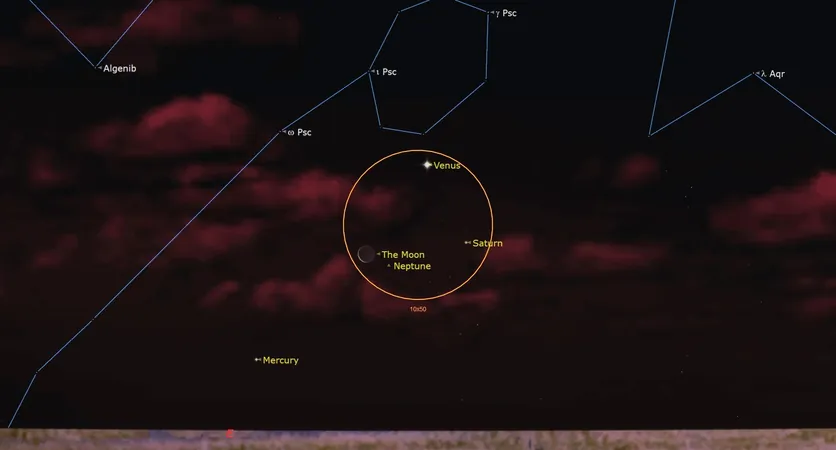
Unveiling an Ancient Secret: 7,000-Year-Old Algae Resurrected from the Depths of the Baltic Sea!
2025-04-09
Author: Chun
A Groundbreaking Discovery Beneath the Waves
In an astonishing scientific breakthrough, researchers have brought prehistoric algae back to life after nearly 7,000 years of dormancy beneath the Baltic Sea. This remarkable feat plunges us into an extraordinary era of biological time travel, transforming our understanding of the resilience of marine life.
The Incredible Revival of Ancient Algae
An international team, spearheaded by phytoplankton expert Sarah Bolius at the Leibniz Institute for Baltic Sea Research, has successfully reactivated algae tucked away in deep sediment layers. Published in 2025 in The ISME Journal, this groundbreaking research opens new frontiers in resurrection ecology, showcasing the incredible dormancy capabilities of certain organisms.
Time Capsules of the Sea: Behavioral Insights
The researchers examined sediment cores from depths of 240 meters in the Eastern Gotland Deep, unlocking secrets akin to those found in the incredible preservation of a 50,000-year-old mammoth. Phytoplankton cells from nine samples, each echoing different climatic eras of the Baltic, were revived, revealing invaluable insights into ancient ecosystems and their genetic development.
Resilient Life: Algae Thriving After Millennia
Astonishingly, the revived algae, particularly the diatom Skeletonema marinoi, retained their full biological functions after thousands of years. Laboratory tests showed these ancient organisms effectively grew, divided, and photosynthesized just like today's living counterparts. They produced oxygen at remarkable rates, suggesting these ancient species have conserved vital biological functions over millennia.
Unlocking the Past: A New Era of Scientific Exploration
This groundbreaking discovery paves the way for innovative "time jump experiments" in laboratories, allowing scientists to witness ancient organisms' responses to changing environments compared to their modern relatives. “Reactivating such ancient algae is a pivotal step in developing resurrection ecology,” emphasizes Bolius. This approach may illuminate how species adapt to climate change over geological time.
Beyond the Baltic: Implications for Future Research
The implications of this research extend far beyond the shores of the Baltic Sea. As scientists delve deeper into understanding life's evolution, resurrected dormant organisms may offer vital clues to survival mechanisms and inspire advancements in biotechnology and regenerative medicine. This incredible resurrection reminds us that the ocean still hides secrets, continuously enriching our understanding of life’s enduring resilience in the face of drastic environmental changes.


 Brasil (PT)
Brasil (PT)
 Canada (EN)
Canada (EN)
 Chile (ES)
Chile (ES)
 Česko (CS)
Česko (CS)
 대한민국 (KO)
대한민국 (KO)
 España (ES)
España (ES)
 France (FR)
France (FR)
 Hong Kong (EN)
Hong Kong (EN)
 Italia (IT)
Italia (IT)
 日本 (JA)
日本 (JA)
 Magyarország (HU)
Magyarország (HU)
 Norge (NO)
Norge (NO)
 Polska (PL)
Polska (PL)
 Schweiz (DE)
Schweiz (DE)
 Singapore (EN)
Singapore (EN)
 Sverige (SV)
Sverige (SV)
 Suomi (FI)
Suomi (FI)
 Türkiye (TR)
Türkiye (TR)
 الإمارات العربية المتحدة (AR)
الإمارات العربية المتحدة (AR)